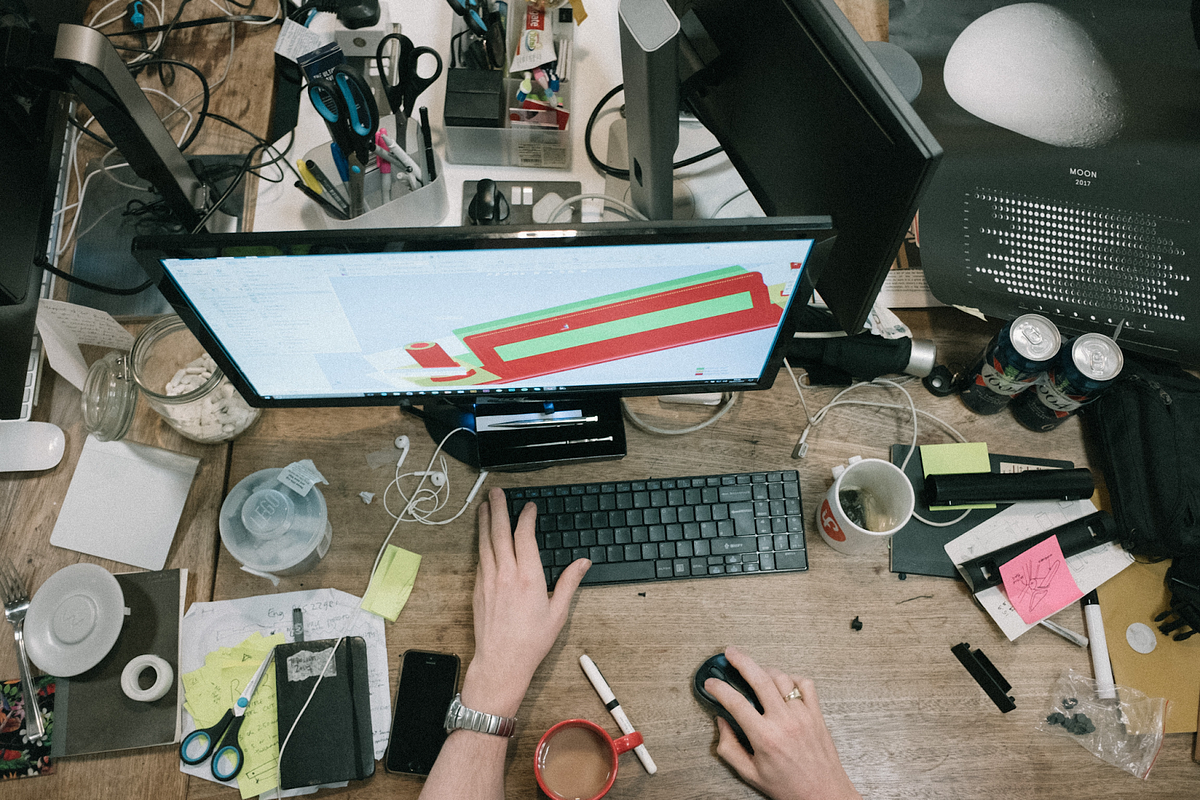84 years ago, Benjamin Franklin said ‘Time is money’. A quote that couldn’t ring more true in today’s society.
Tasks that are ‘time wasters’ have become all too common as a part of working life. Some tasks may be done as part of business tradition, but are not required for your specific firm. Hence the status quo that has worked in the past may not necessarily be the most optimal method to follow.
Wasting time at work has a number of drawbacks that can harm employers and employees alike. Not only can time wasters at work lead to financial implications for businesses, but it can also lead to employee frustration, disengagement and even burnout. Why burnout? You spend a lot more time in the office as your time spent working is simply not being utilized efficiently. The same tasks take you longer and longer to complete.
With that being said, let’s talk through the top 10 time wasters — and how we can work to avoid them.
On we go!
1. Unnecessary Meetings
Meetings are often seen as a necessary evil in the workplace. However, if not managed effectively, they can quickly become a huge time waster.
According to a study conducted by the consulting firm company Korn Ferry, over 67% of employees say excessive meetings prevent them from completing their work to the best of their ability.
To avoid wasting time in unproductive meetings, try to limit them to 30 minutes or less. You should also make sure that there is a specific purpose for the meeting, and that everyone invited knows what is expected of them. Set a clear agenda beforehand and stick to it — and avoid scheduling meetings back-to-back so that there’s some breathing room in between.
It is often the case that employees are forced to attend meetings for the sake of attending meetings. To prevent this from being a recurring issue, employers should make a conscious effort to narrow down the invite list — to limit the number of attendees to only those who absolutely need to be there. It may only be a half an hour meeting, but constantly pushing your employees in and out of their work impacts their concentration and can be much more harmful than only that half an hour.
2. Social Media
Interestingly enough, social media is one of the biggest time wasters both in and out of work.
With platforms like Twitter, Facebook and Instagram only a click away, it’s easy to get lost in a scroll session. While social media can be used for work purposes, such as networking or promoting your brand, it can also be a huge time waster. If you find yourself frequently checking Facebook, Twitter or Instagram during work hours, it’s time to cut back.
One way to do this is by designating specific times for social media breaks — say 20 minutes at 10am and again at 2pm. Another option is to use website blocker tools like Freedom or StayFocusd — these work well to help you stay focused on task
Both methods follow the method of allocating your time efficiently, so you stay focused during work hours while still having a good chunk of time in your day to enjoy yourself online. It’s all about balance.
3. Email Overload
Another major time waster in the workplace is dealing with an overflowing inbox. According to a study by McKinsey Global Institute, workers spend 28% of their day reading and answering emails.
To avoid this, try to batch your email checking and responses. Checking your emails every 15–20 minutes will only lead to more interruptions and distractions. Instead, set aside a couple of times during the day to check and respond to emails. This will help you stay focused and avoid getting side-tracked when you really should be putting your attention elsewhere.

4. Procrastination
We’ve all been guilty of putting off tasks that we don’t really want to do, but procrastination can be a real time-waster.
If you find yourself constantly deferring tasks, try setting yourself smaller goals to achieve within a certain timeframe. For example, instead of telling yourself you will ‘write X report’, set a goal to write 500 words by lunchtime.
The Pomodoro method is an excellent way to prevent procrastination, by working in chunks with small breaks in between. It helps you break down large tasks into manageable chunks, which can help you to avoid procrastination and get things done more quickly.
5. Unclear objectives/goals
If you don’t know what you’re working towards or what the end goal is, it can be difficult to stay motivated and focused on the task at hand. You can end up wasting a lot of time at work on unrelated, irrelevant tasks that don’t contribute towards your companies or your own individual goals.
This is why it’s important that employees have a clear understanding of their objectives and goals. When setting objectives, be specific, achievable and relevant, and make sure that they are communicated to employees in a clear and concise manner.
It’s also crucial that employees set their own personal goals at work. This will keep them motivated and hungry to keep improving their quality of work, and importantly — to not waste time!
6. Perfectionism
While it’s important to strive for excellence in the workplace, spending too much time perfecting every little detail can actually lead to more mistakes being made. Not to mention, it can also be incredibly frustrating for both employees and clients alike.
Instead of striving for perfection, focus on doing the best that you can with the time that you have. And remember — sometimes ‘good enough’ is actually good enough.
It can be a big time waster at work to spend hours poring over details for one small task to make sure it is absolutely perfect, when you could have completed multiple tasks to a similarly very high standard.
Perfection is not necessary, so don’t waste your life pushing for it for every little task. Talk to your manager about your quality of work, and they can tell you what standard is required. Employees are often surprised at what qualifies as a good quality of work — they then realize that spending hours upon end pushing for perfection is often not worth it.
Set realistic standards for yourself and others , and don’t agonize over small details that don’t really matter in the grand scheme of things. Learn to let go of control , and delegate tasks where appropriate. Accept that mistakes will happen — they are part of life!
7. Multitasking
The unending debate over multitasking and whether it is indeed worth it!
Contrary to popular belief, multitasking is actually less efficient than completing one task at a time. When we try to do too many things at once, our brain becomes overloaded and we make more mistakes.
To avoid this, focus on one task at a time and give it your full attention. Set aside specific times for each task and stick to them. If you need to multitask, break the tasks down into smaller, more manageable chunks.
You will find that as you stop multitasking and start focusing on one task at a time, the quality of your work will skyrocket — and the time taken to finish it will crash. Such are the benefits!

8. Lack of organization and planning
Knowing what you’re meant to be doing at any given time is priceless for your company, and definitely for your own development.
This is why planning is such a key component to avoid wasting time. It’s far too easy to start a day with a laissez-faire attitude, not knowing what tasks you should prioritize. This can often lead to aimless wandering and eventually, many wasted hours.
The lesson is to make a plan, schedule your time efficiently, and ensure you stay organized with how you structure your day. If you’re struggling with planning the traditional way, then consider using apps like Slack, Asana or Notion to help you stay on track.
9. Not knowing when to say ‘no’
It’s far too easy to try and impress your colleagues and your manager by taking up every little task that comes your way.
Whilst it’s great to be a team player, you also need to know when to draw the line. Trying to do too much will only lead to you becoming overwhelmed and stressed, and ultimately not being able to complete any of the tasks to a high standard. Not only will this waste your time, but your company will be impacted as the work simply isn’t being done within time limits or to a high standard.
So if you’re struggling to keep on top of your workload, have a chat with your manager and explain the situation. They may be able to redistribute some of your tasks or give you some additional support. Say ‘no’ when you have to! As long as you explain your reasoning, your manager/company will be more than understanding of your situation.
10. Using outdated technology and equipment
Using old equipment that hasn’t been updated or serviced regularly can be a time waster at work.
Outdated technology can lead to longer search times for documents, as well as decreased productivity when trying to complete tasks. In some cases, it can even be a safety hazard.
To avoid this time waster, make sure that you regularly update your equipment and technology. This may mean investing in new software or hardware, or simply ensuring that your current equipment is regularly serviced.

Time Wasters: The Bottom Line
When various processes and tasks take significantly longer to complete than anticipated, we must perk up and acknowledge that this must be down to a particular time-waster. Use this article above and keep conscious of these common issues in the workplace
We must work towards avoiding these pesky, yet frequent time wasters — productivity, efficiency and employee welfare for the win!
